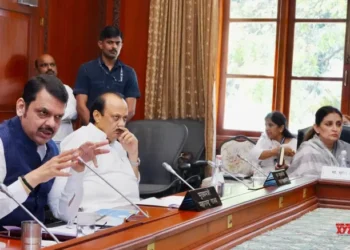The study has revealed key genetic signatures also that can predict survival in oral cancer patients with over 90 percent accuracy.
In what is claimed to be path-breaking research, the city-based government institute, along with HCG, has identified 114 genetic variants which cause oral cancer in humans.
The study has revealed key genetic signatures also that can predict survival in oral cancer patients with over 90 percent accuracy.
Karnataka Minister for IT/BT and S&T C N Ashwath Narayan said, the research was conducted jointly by IBAB (Institute of Bioinformatics and Applied Biotechnology), an institute set up by Department of IT/BT, and research doctors from HCG, using state-of-the-art genomics facility located at IBAB.
The study made extensive use of advanced machine learning and bio-informatics, he was quoted as saying by his office in a press release.
“Though the oral cancer is one of the most common in the country (40 percent of all cancer cases), this was the first time such an extensive study had been carried out relating to this. The data obtained in the research has been compared with western genetics. The work has already been acknowledged by international bodies like the Royal College of Surgeons of England. The study report has also been published in a highly acclaimed medical journal,” the Minister said.
The analysis of mutations gave out a list of unique genes associated with 114 novel variants of which 35 were oncogenes, 11 tumor suppressors, and two DNA damage repair genes, he said adding that the research would guide towards cell-targeted personalised treatment.
Noting that the researchers have identified novel mutations in the IRAK1 gene, which would pave way to provide target-directed treatment without affecting the healthy cells in the body, Narayan said there was a plan to collaborate with pharmaceutical companies. ”This is going to be an important contribution from Karnataka not only to the country but also to the entire world. This will enable us to solve the mystery of cancer genetics and save more lives in the coming years,” he added.
Dr. Vishal Rao, Dean, Centre for Academic Research, HCG Cancer Centre, said, ”This extensive research would not have been possible by private hospitals alone without government’s cooperation. The government of Karnataka facilitated the clinicians and researchers to work on a common platform.” Currently, oral cancer is found to recur in up to 50 per cent of cases even after the best treatment, but the present research would make it possible to provide treatment in an effective way such that the disease does not recur and enables precise treatment with improved quality of life, said professor Vibha Choudhary, IBAB, said.






















